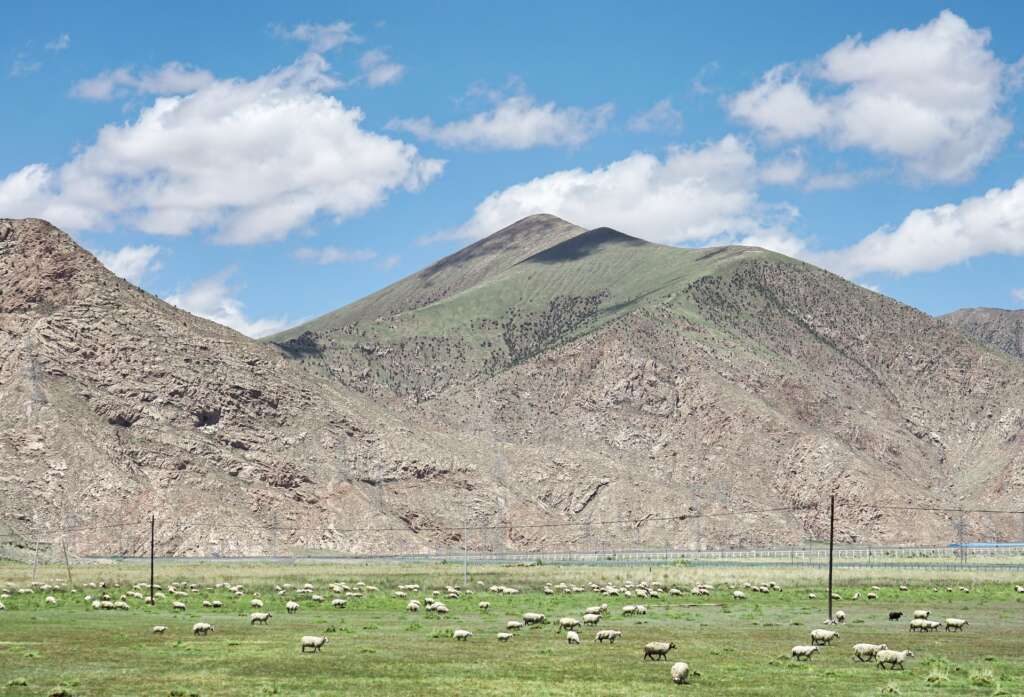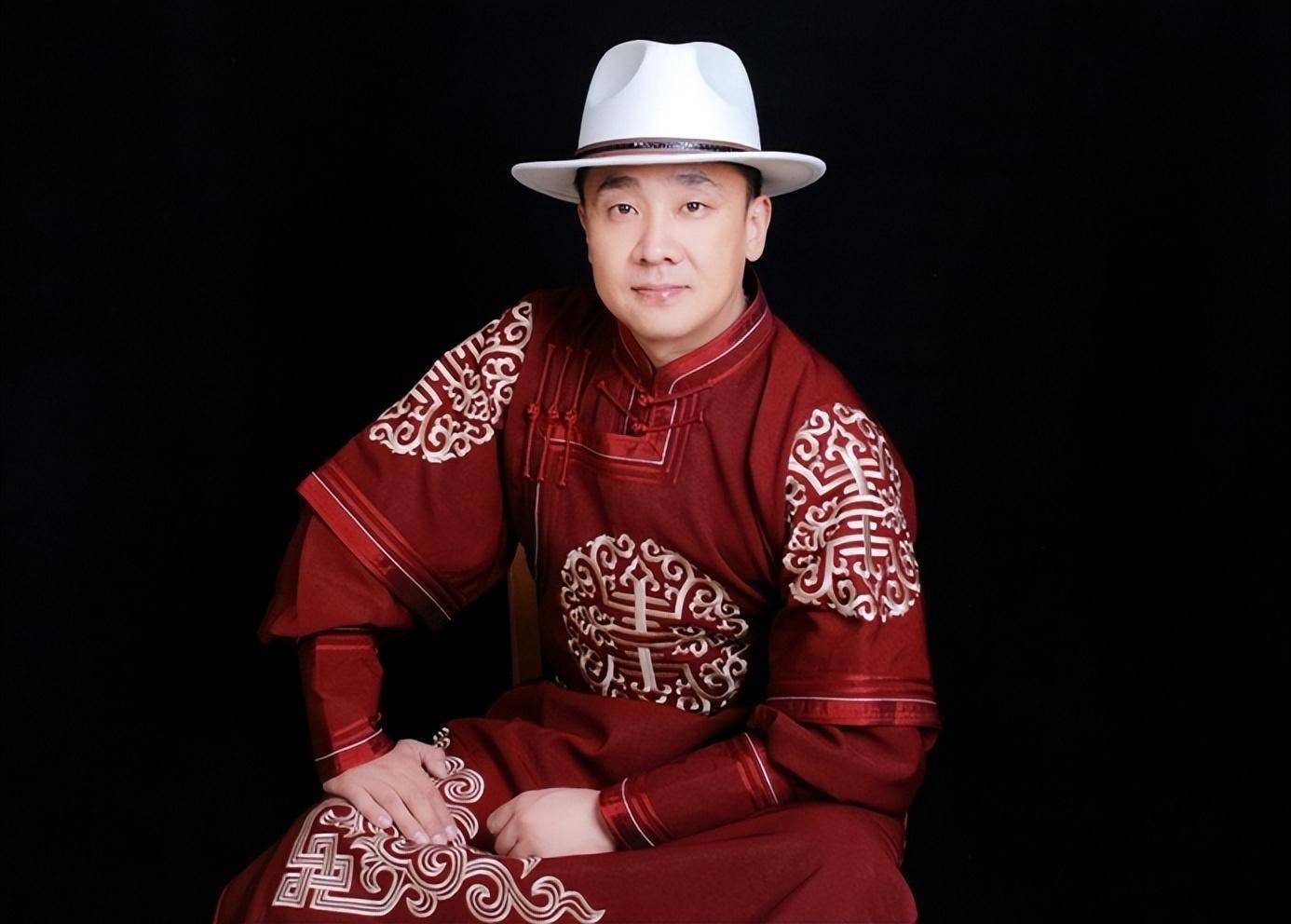A FORMER HERDSMAN on the remote Qinghai-Tibet steppes has won a top literary prize in China—even though he left school at the age of 12.
Suonan Cairang (索南才讓) first encountered modern storytelling as a child—when people set up tents in which rural people could watch videos. The organizers would sometimes play the videos so loud that they would echo through the mountains, audible ten kilometers away.

Suonan and his friends ran for several kilometers to reach the tents, and then crammed themselves inside. Because chairs took up too much space, everyone in the tent sat cross-legged on the floor and couldn’t even stretch their legs, he told the media.
He said he grew up with a particular love for Hong Kong police films and costumed martial arts films made by the city’s TVB production house.

But that was a quarter of a century ago. Today Suonan Cairang is 37 years old, and his book “On the Wasteland” (荒原上), has recently won the eighth Lu Xun Literary Award for Excellent Novella (魯迅文學獎中篇小說獎).
The story of the lives of herdsman like himself took him 12 years to write. It has made him the first person in Qinghai Province (青海省) to win the Lu Xun prize, one of China’s top four literary awards.

In an interview, Suonan said that as a local herdsman on the Qinghai-Tibetan steppe, the environment of his hometown nourished his literary soul. He said he hoped that through his works more people would understand the real life of modern herdsmen in China.
Suonan, who is of Mongolian ethnicity, was not the first author to write about nomadic life in China, but he is undoubtedly a unique one. Liu Xiaolin (劉曉林), vice-chairman of the Qinghai Provincial Writers’ Association and a critic, shared his analysis of the work: “He does not deliberately emphasize ethnicity and regional writing styles, and does not contrast the world with the local region, the traditional with the modern. He doesn’t seem to have been influenced by the usual thinking in writing ethnic literature, and he prefers to adopt a neutral narrative, focusing on the everyday life of the steppe, such as herding, drinking and dating, from which readers can see the increasingly overgrown state of the steppe lifestyle under the influence of modern civilization.”
You might think that leaving school at the age of 12 would mean that he was not educated enough to win a literary prize. But he says the only thing he has never regretted is leaving school.
“At that time, the conditions did not allow for further study,” he told the media. “The family lived in the pastoral area, so if I continued to study, I would have to go to the county, 40 kilometres away from the winter pasture. The summer pasture would be 70 to 80 kilometres away.
“There were no boarding schools in the county, so I had to stay with a relative, and there was no one to take care of me. Also, I couldn’t read on my own, and when I said I wouldn’t read, the family was happy because they needed manpower to help with the herding,” Suonan said, “Looking back, instead of reading in school, I read more after coming out, and going to school and reading are two different things; school is about learning, not reading.”
He said that the first book to which he was introduced was “Demi-Gods and Semi-Devils”(天龍八部) written by Jin Yong, the pen name of Hong Kong writer Louis Cha, famed for his historical stories of China.

“I took that book and went to herd my sheep. It was winter and a yellow sandy day, but I didn’t have time to pay attention to anything else all day, I didn’t even know where my sheep were. That was the beginning of reading for me,” the writer said.
In 2008, the herding area where Suonan Cairang lives began to be added to the electricity grid. At the time, he was 23 years old and already married. After the advent of solar energy, many herders bought a small black-and-white TV, a VCD, two large solar chargers and a battery to watch TV at home. Now, with mobile phones, there is basically no difference between life in the pastoral area and in the city, and there is no delay in the flow of information in the pastoral area.
The lives of the herders have also changed dramatically. Today, it is no longer possible for teenage children to go herding; they all go to school. The perception of all the herders has changed. In the past, they would not have thought that education was the only way out or the best prerequisite for a future in life, but now it is.

But many people of Suonan Cairang’s generation have not left, so their generation is the last group of nomadic herders, and not many people in the next generation will go into the profession, which is already shrinking.
This shrinkage is not only decided by the herders themselves, but also by environmental policy adjustments. Qinghai is an important ecological reserve, and everything is based on the premise of protecting the ecology, so grazing is not encouraged. For example, the number of livestock depends on the carrying capacity of the pasture; if there are 1,000 hectares of pasture, only 200 to 300 sheep can be kept.
Image at the top by Sohu.

